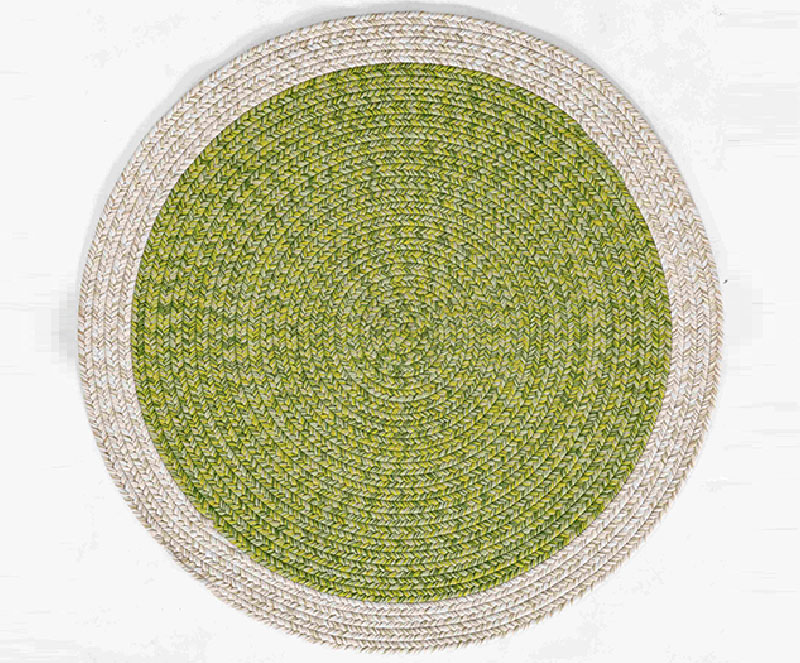Unraveling the Enigma of Braided Carpets: A Dive into a Timeless Rug Genre
Embarking on a quest to unravel the enigmatic realm of braided rugs reveals a kaleidoscope of colors, an abundance of whimsy, and unparalleled resilience, all harmoniously blended into these charming home adornments. A braided rug is more than just a floor covering; it's a versatile masterpiece that can serve as a welcoming doormat, a playground for the little ones, a captivating hallway centerpiece, or an intriguing living room accent.
Imagine a piece that effortlessly weaves together the complementary hues sprinkled throughout your living space. A braided rug possesses the remarkable ability to unite these colors harmoniously, effortlessly adding a subtle, nuanced shade to your decor scheme. What's more, the intricate texture of these rugs injects a captivating depth into any room, thanks to their mesmerizing twists, patterns, and the exquisite materials from which they are meticulously crafted.
What is a braided rug?
A braided rug is a unique and resilient floor covering created by weaving together strips of fabric or natural fibers. These rugs can vary in color, ranging from monochromatic to multicolored, and some boast intricate and eye-catching designs. The hallmark of braided rugs is their exceptional durability, making them enduring family heirlooms when properly maintained.
At the heart of every braided rug lies its core, the starting point for its creation. Rings of fabric or fibers are tightly woven around this core, rendering the rug nearly impervious to tearing or fraying. Certain fabric types used in these rugs may even possess some resistance to stains and can withstand the rigors of daily use.
Braided rugs are celebrated for their remarkable adaptability, available in an array of shapes and sizes. They can be crafted from luxurious wool or repurposed fabrics, embodying sustainability. Additionally, materials such as jute, yarn, and polyester can be used in crafting these versatile rugs.
There are three primary styles of braids:
Cloth braids: These are fashioned from strips of cloth that are skillfully sewn together, resulting in a sturdy and visually appealing rug.
Yarn braids: Composed of braided yarn, these rugs offer a more budget-friendly option compared to cloth braids while maintaining durability.
Tube braids: These braids are formed from loose fabric tubes, representing the most economical choice but often considered less aesthetically appealing.
The Rich Tapestry of Braided Rug History
The origins of braided rugs trace back to indigenous tribes in North America, who ingeniously wove wool and assorted fabric scraps into saddles and blankets long before the arrival of settlers. Upon encountering these skilled artisans, the colonists were quick to adopt their weaving techniques, repurposing the creations into a novel use - rugs. This transition occurred as early as the 16th century, marking the humble beginnings of braided rugs.
Over time, the art of rug weaving found a new home in the hands of North American housewives, who diligently carried forward this cherished tradition. Burlap, wool, fabric, and various other materials were deftly interwoven to craft rugs that graced their homes. These resourceful women often utilized leftover scraps from sewing projects and garment making, ensuring that no material went to waste.
With the advent of the Industrial Age, machines were developed to mechanize the production of braided rugs, yet the cherished tradition of hand weaving persevered in many corners. Today, rug enthusiasts and homeowners can peruse a diverse array of braided rug options, customizing everything from the choice of materials to the final design.
How to Select the Perfect Braided Rug
When embarking on the quest for the ideal braided rug, a multitude of considerations must be weighed. The foremost question to ponder is whether to opt for a hand-woven masterpiece or a machine-made alternative.
Hand-Woven Braided Rugs: These exquisitely crafted rugs, fashioned from top-tier materials, stand as enduring testaments to quality and artistry. Possessing an unparalleled array of colors and shapes, they even offer the tantalizing prospect of customization to align with your personal preferences. However, it's worth noting that these rugs, owing to their exceptional quality, reside in the higher echelons of pricing and may prove challenging to replace.
Machine-Made Braided Rugs: While machine-made counterparts also come in a diverse spectrum of shapes and colors, they may lack the intricate details and top-tier quality of their hand-woven counterparts. Nonetheless, they offer accessibility and budget-friendliness, without compromising on durability.
Beyond this fundamental choice, several other factors come into play:
Size: Consider the dimensions that best suit your space. Whether you require a rug to cover a child's playroom or to grace a larger area, there's a braided rug to match.
Color: The color palette of your rug can either harmonize with existing decor or inject a vibrant burst of personality. Neutral tones can unify a room filled with bright accents, while a patterned braided rug can infuse character and depth into a more subdued space.
Style: Choose a style that resonates with your interior theme, whether it's classic, contemporary, or eclectic.
Shape: The shape of the rug can define a space, from classic ovals and circles to more unconventional shapes.
To ensure your braided rug stays in place and provides a secure footing, it's advisable to invest in a rug pad, as these rugs typically lack grips on the underside. Additionally, while braided rugs are renowned for their durability, occasional maintenance may be necessary if a braid comes loose. Take care to protect the rug's borders, which may not be as tightly secured as other types of rugs.
In your quest for the perfect braided rug, weigh these factors carefully to adorn your space with a timeless and charming addition.
For beautiful braided rugs, visit Home Interior today.


Comments
0